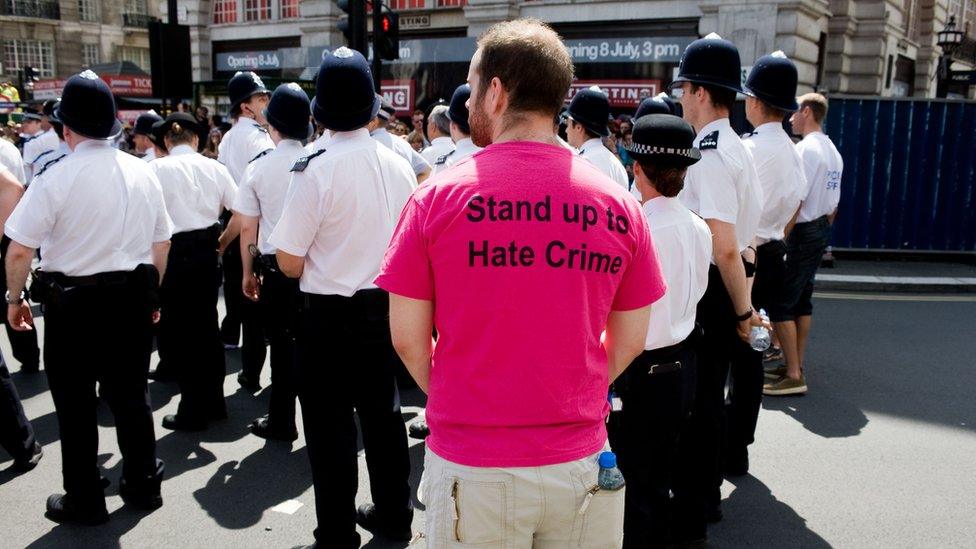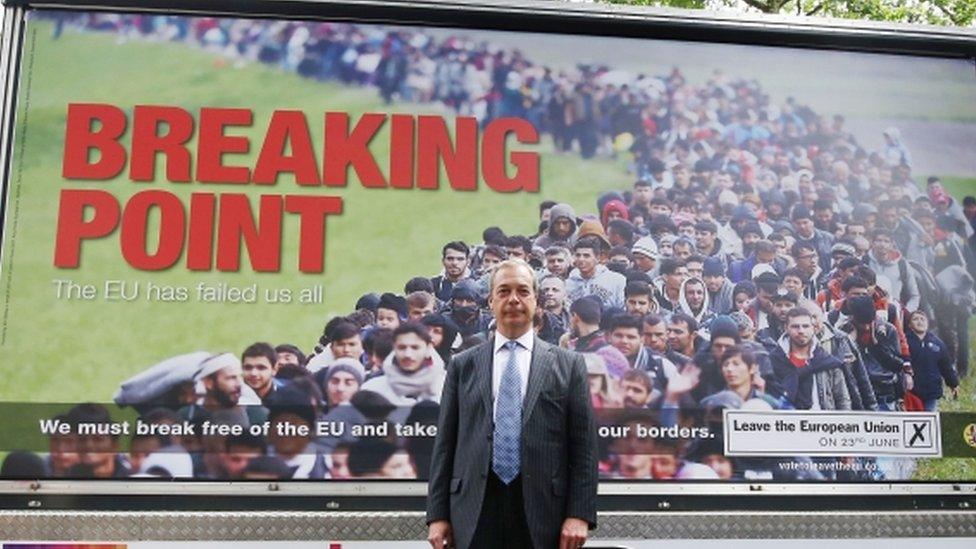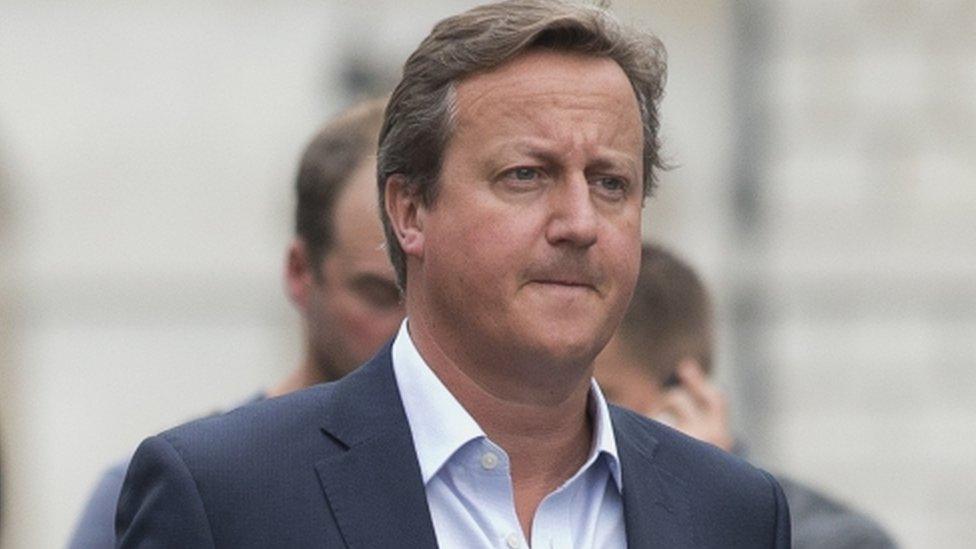Human rights report warns over 'anti-foreigner sentiment'
- Published

Some 3,198 hate crimes were reported from 16-30 June - a 42% rise on 2015
Xenophobia in the UK has been stoked by "considerable intolerant political discourse", a European human rights watchdog claims.
The European Commission against Racism and Intolerance said racist violence had been "on the rise" in the UK.
There had been an increase in anti-Muslim violence since 2013 as well as record levels of anti-Semitic incidents in 2014, it said in a report.
The government launched a new hate crime action plan in July.
A review is also under way in to police handling of hate crime in England and Wales following a sharp rise after the Brexit referendum. In response to the report the UK government said it was proud of its equalities legislation and questioned aspects of the report.
The European Commission against Racism and Intolerance is part of the Council of Europe, which has 47 members and was set up to promote democracy and human rights in Europe. It is not part of the European Union.
In the report, external, which covered the period between 2009 and March this year, the European Commission against Racism and Intolerance said the UK had "generally strong legislation against racism and racial discrimination".
In particular, it welcomed the Equality Act 2010, the government's hate crime action plan and efforts to promote and protect LGBT rights.
But it said there continued to be "considerable intolerant political discourse" in the UK "focusing on immigration and contributing to an increase in xenophobic sentiments".

The report criticised UKIP's language on immigration
The watchdog accused UKIP and "some Conservative MPs" of "large-scale scaremongering" over the lifting of EU restrictions on Bulgarian and Romanian nationals' access to the labour market.
"Terms such as 'invasions' and 'floods' were frequently used as well as the expression 'benefits tourism'", it said, adding that the use of such terms "contributes needlessly to an increase in xenophobic sentiments".
It also criticised former PM David Cameron for his description of migrants trying to reach Britain as a "swarm" when talking about the Calais crisis in July 2015.
And while it welcomed Mr Cameron's £20m language fund to teach Muslim women to speak English, "it regrets that the prime minister associated it with countering 'backward attitudes' and extremism".
The report also said:
Muslims were portrayed in "a negative light by certain politicians"
Muslims' alleged lack of integration and opposition to "fundamental British values" was "a common theme adding to a climate of mistrust and fear of Muslims"
The government's counter-terrorism strategy, Prevent, "may fuel discrimination"
Hate speech in some traditional media, particularly tabloid newspapers, "continues to be a problem"
There are "significant gaps" between equality law in Great Britain and in Northern Ireland
There is no national strategy for the integration of Roma, Gypsies and Travellers in the UK
European Commission against Racism and Intolerance chairman Christian Ahlund said: "It is no coincidence that racist violence is on the rise in the UK at the same time as we see worrying examples of intolerance and hate speech in the newspapers, online and even among politicians.
"The Brexit referendum seems to have led to a further rise in 'anti-foreigner' sentiment, making it even more important that the British authorities take the steps outlined in our report as a matter of priority."

The ECIR criticised the choice of language used by David Cameron when speaking about migrants trying to reach the UK
In its response to the report, the government said it was "proud" of its equalities legislation and listed several examples of action it was taking as part of its commitment to "creating a fair society" - including an audit to tackle racial disparities in public service outcomes and its hate crime action plan.
"While we are pleased to see that some examples of good practice in the United Kingdom are identified, this is heavily outweighed by lengthy sections pointing out supposed shortcomings," it said of the report.
"We are particularly concerned to see that the Commission repeats controversial and eye-catching press headlines and some alleged statements by politicians, which wrongly implies that these are the prevailing narratives in the UK and/or are government policy, when there are numerous cases of leading politicians celebrating and speaking out positively about the enormous contributions that minorities have made to this country's success."
"It is also unclear whether the Commission is making its assessments against a common set of standards, and if so, what these are," the government added, and sought assurances the UK was being held to the same standards as other EU members.
- Published26 July 2016

- Published26 August 2016
